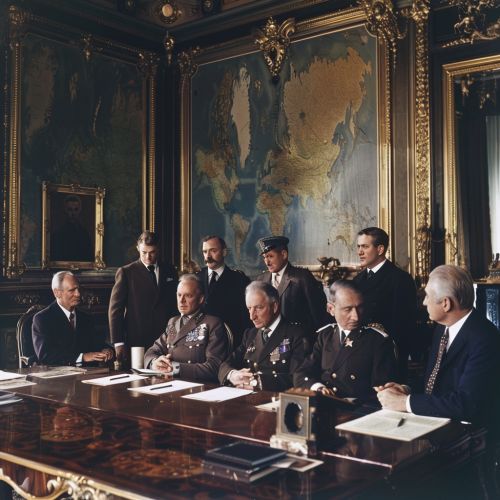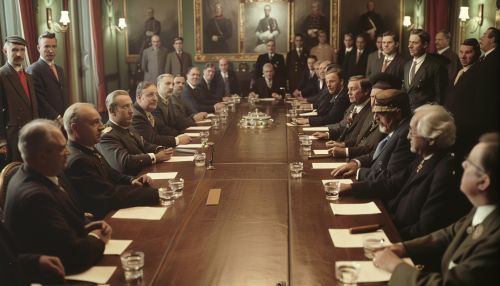Triple Entente
Origins of the Triple Entente
The Triple Entente was a diplomatic and military alliance formed between three major European powers in the early 20th century: France, Russia, and the United Kingdom. The alliance was a significant factor in the geopolitical landscape of Europe leading up to World War I, and its formation was a response to the perceived threat of the Triple Alliance between Germany, Austria-Hungary, and Italy.


The roots of the Triple Entente can be traced back to the late 19th century, when tensions between the major European powers were escalating. The formation of the Triple Alliance in 1882 had created a powerful bloc that threatened to upset the balance of power in Europe. In response, France and Russia formed a bilateral alliance in 1894, known as the Franco-Russian Alliance, in order to counterbalance the Triple Alliance.
The United Kingdom, which had traditionally maintained a policy of "splendid isolation" from continental affairs, began to reconsider its stance in the face of growing German naval power. The Anglo-Japanese Alliance of 1902 marked the end of this policy, and the UK began to seek closer ties with other European powers. The Entente Cordiale between the UK and France in 1904, followed by the Anglo-Russian Entente in 1907, completed the formation of the Triple Entente.
Structure and Function of the Triple Entente
The Triple Entente was not a formal alliance like the Triple Alliance. Instead, it was a series of bilateral agreements between the three powers. The Entente Cordiale resolved colonial disputes between the UK and France, while the Anglo-Russian Entente settled conflicts in Asia. The Franco-Russian Alliance, meanwhile, was a military alliance promising mutual support in the event of a war with Germany or its allies.
Despite its informal nature, the Triple Entente represented a significant shift in the balance of power in Europe. It effectively encircled Germany, which was the most powerful member of the Triple Alliance, and increased the likelihood of a two-front war in the event of conflict. This was a major factor in the strategic planning of all the major powers in the lead-up to World War I.
Impact of the Triple Entente
The formation of the Triple Entente had far-reaching consequences for the geopolitical landscape of Europe. It marked the end of the UK's policy of isolation, and it significantly increased the likelihood of a large-scale war in Europe. The alliances and rivalries formed during this period were a major cause of World War I.
The Triple Entente also had significant implications for the colonial empires of the three powers. The agreements between the UK, France, and Russia resolved many colonial disputes and allowed for a degree of cooperation in their overseas territories. This had the effect of strengthening their global influence at the expense of the Triple Alliance powers.
Legacy of the Triple Entente
The Triple Entente played a crucial role in the outbreak of World War I. The system of alliances and rivalries that it helped to create led to a complex web of obligations and expectations that ultimately triggered the war. The Triple Entente itself did not survive the war, as the Russian Revolution of 1917 led to Russia's withdrawal from the alliance.
However, the legacy of the Triple Entente can still be seen in the modern world. The alliances and rivalries it helped to create shaped the course of the 20th century, and its impact can still be felt in the geopolitical landscape of the present day.
